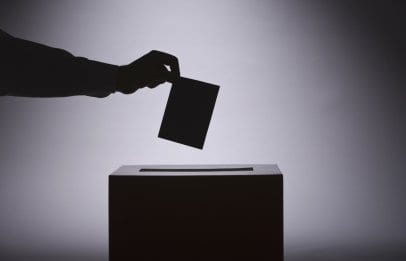With election day still more than a month away, it looks like the stars are aligning for massive gains by progressive forces in Canadian politics. A spate of recent polls are drawing a picture of a two-way NDP-Liberal race, with the Conservatives fading into third. And yet with victory in grasp, Liberal and NDP leaders swinging through Pride parades during the campaign, and an enormous number of openly LGBT candidates running — at least 17 across the major parties — the parties are being suspiciously mum on queer issues.
At this stage, no party has released its full platform (the NDP recently scrubbed its 2013 policy book from its website, saying it no longer reflects what the party is running on), but a picture of where both parties stand on the issues can be pieced together.
Both the NDP and Liberal leaders have gone on the record as supporting a trans rights bill if put in government. Both parties have sections on their websites about ending the discriminatory ban on gay men donating blood. In the last Parliament, the NDP introduced bills to equalize the age of consent for anal and vaginal sex, to suspend criminal convictions for gay sex and to apologize and amend the records of civil servants and military personnel who were fired or discharged due to sexual orientation. None of these appear on the current NDP agenda, although they all seem uncontroversial.
More difficult queer issues appear to vex both parties. While individual Liberal and NDP candidates have spoken out in the past against Bill C-36, the law that recriminalized most aspects of sex work after the Supreme Court struck down Canada’s prostitution laws in 2013, the parties have announced no position on whether they will repeal it or maintain the almost certainly unconstitutional criminal prohibition on sex work.
In a particularly galling move, in August 2015, NDP leader Tom Mulcair announced a suite of policies aimed at “ending violence against women” and was silent on the issue of sex work, despite the fact that the Supreme Court found that criminalization was a major factor in exposing sex workers to danger and violence. Does Mulcair disagree with the Supreme Court (it wouldn’t be the first time), or does he consider violence against sex workers to be less urgent than violence against other women?
Or take pharmacare. Long an NDP dream to introduce a national prescription drug plan, it appears that goal has been displaced in favour of a national daycare plan. A national drug plan could be a major boon for the LGBT community, especially when it comes to trans people accessing hormone therapies, HIV-positive people accessing treatments, and gay and bi men, and other high-risk populations, accessing PrEP to help prevent the spread of HIV.
But the only drug policies the parties seem interested in debating this season are whether to decriminalize pot (as the NDP favours) or legalize it (as the Liberals prefer), and whether to approve more safe injection sites for heroin users (both parties in favour). The other parties prefer the status quo.
For what it’s worth, legalization sounds like the more progressive option, as decriminalization would still expose pot users to fines that could be arbitrarily enforced by police.
Finally, let’s look at civil liberties and policing, a file on which no party is covering itself in glory. While the NDP is taking evident glee in striking the giant target the Liberals painted on themselves by voting in favour of Harper’s surveillance Bill C-51 and recruiting former Toronto police chief Bill Blair to run for them in Scarborough, the party has been disconcertingly quiet about that other major, ongoing civil rights issue in Toronto — carding.
Despite years of complaints from Toronto’s black and minority communities that police “carding” — a process where police officers stop and question people they consider suspicious and document their information — amounts to racial discrimination and harassment, no federal party is stepping up and calling this what it is. Given the LGBT community’s long and often fraught history with the police, as a community, we should be strongly against carding.
True, administration of policing is a provincial issue, but civil rights should be a national concern, and the NDP has already waded into the arena.
It’s understandable, but not forgivable, that Trudeau has been silent on carding — he’s hardly looking to start a fight with Kathleen Wynne, who’s been weak on the file, or with Blair, who defended the policy when he was chief. But why are the NDP quiet?
An educated guess springs from their announcement early in the campaign that the party would pump $250 million annually into hiring more police officers. This is already a baffling policy, given declining crime rates across Canada and municipalities struggling to reduce their ballooning police ranks and costs. But it is a big gift to police unions that would enjoy more members. Those same unions strongly support carding, supported Bill C-36 and prefer decriminalization over legalization of pot — each gives them more to do than the right and sensible policy choice.
Ah. A picture forms.
(Image credit Comstock Images/Stockbyte/Thinkstock)


 Why you can trust Xtra
Why you can trust Xtra


